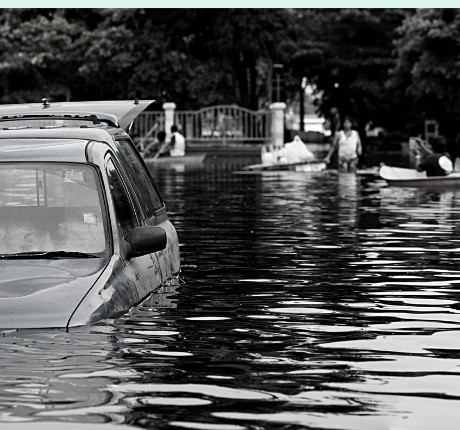PROTECT YOUR PROPERTY FROM EXTREME WEATHER
While flood risks are normally associated with the winter months, extremely high temperatures throughout the summer months has led to an increased risk extreme weather events such as thunder storms with the expectation of flooding of homes and businesses, lightning strikes and strong winds.
Flooding can be a precarious period for businesses, so planning for poor weather conditions can help your business run smoothly and prevent costly claims.
Here’s some advice on how best to prepare for extreme weather risks.
Stay ahead of the storm
The need to keep your property maintenance schedule up to date is important at any time of the year. By preparing for the possible onslaught of high winds and rain that can leave properties worse for wear could save a great deal of stress and financial strain in the future.
Be alert to flood risk
There’s no time like the present to ensure you have taken the necessary precautions to protect your property against extreme weather. Having a damage prevention strategy is also advisable just in case your property is flooded to ensure your business is able to recover quickly.
Take positive precautions
By incorporating precautions into the everyday running of your business ensures a swifter recovery from weather damage. In the event of flooding, take precautions such as:
- Elevating critical stock and equipment off the ground or storing this on an upper floor
- Consider moving any stock kept in open yards to better shelter or higher ground
- Ensuring fuel storage tanks are securely fastened or anchored to reduce potential pollution or damage
- You could also consider raising power sockets, phone connections, servers and cabinets to a higher point, such as 1 metre higher than expected water levels.
- Developing a Flood Emergency Response Plan (FERP) and subscribing to flood alert warnings such as the Environment Agent scheme will ensure you are well prepared should the building flood.
Coping with the aftermath
- Report your claim as soon as possible or contact your insurance provider should you need any assistance. When calling, be sure to provide a telephone number that you can be reached on at all times and have your insurance documents to hand. They will be able to advise you of the best course of action going forward, depending on the severity of the damage.
- Carry out any temporary repairs to prevent further damage but don’t put yourself at risk. Make sure you keep any receipts or invoices for the work carried out. Do not use your own tradesman for full repairs unless you have been advised by your insurer to do so.
- Make a list of damaged items and take photos of the damage where possible.
- Ensure your safety. Keep clear of loose roof coverings or damaged walls.
- Move your belongings to prevent further damage, if it is safe to do so, to upper floors or higher areas.
- In the event of flooding, enable trapped water to escape and air to circulate by removing covers on airbricks.
- Never use the gas or electrical supply in a flooded property until a qualified person checks everything and tells you it is safe.
If you would like to review your business insurance please get in touch with the team at Lockyers, we’re here to help.


